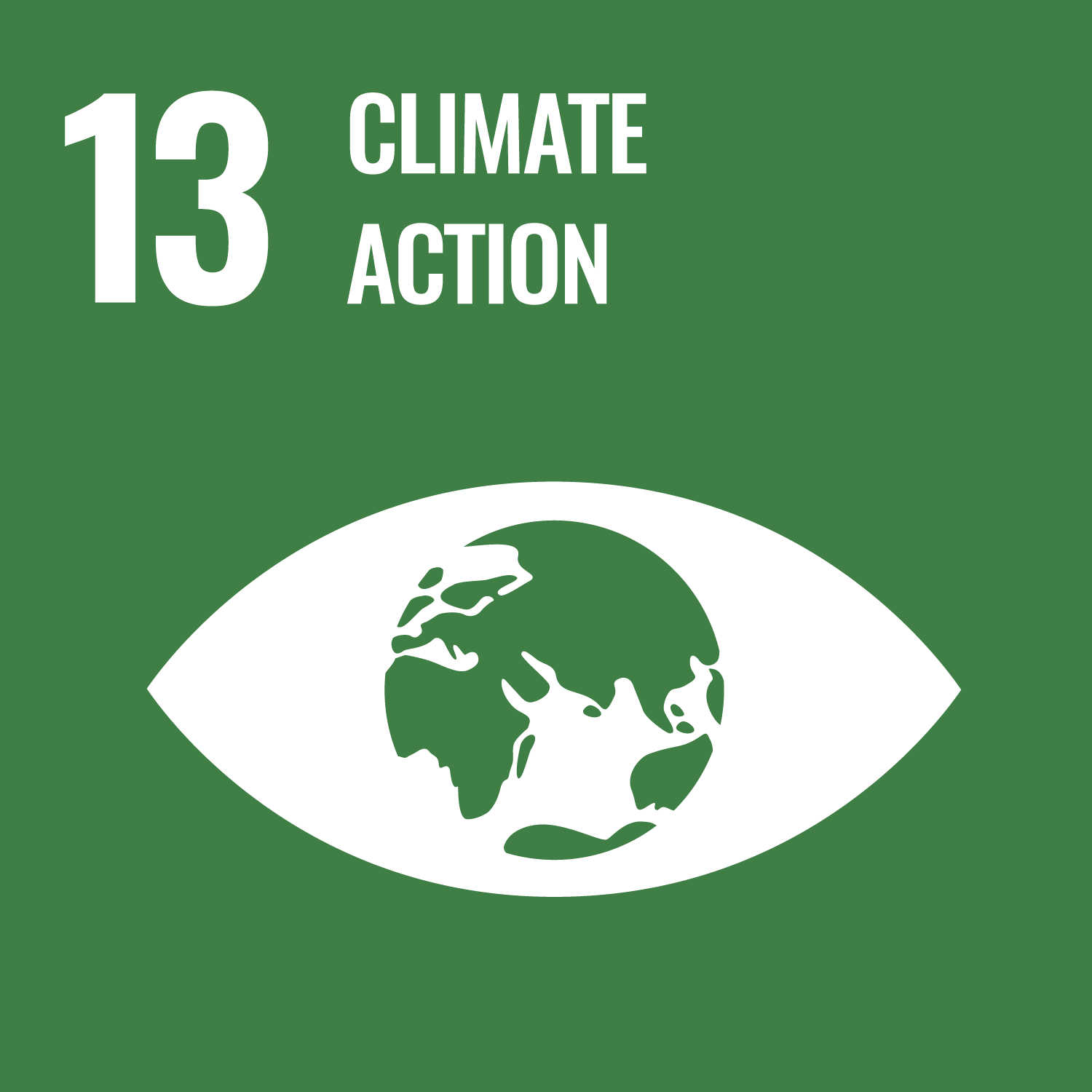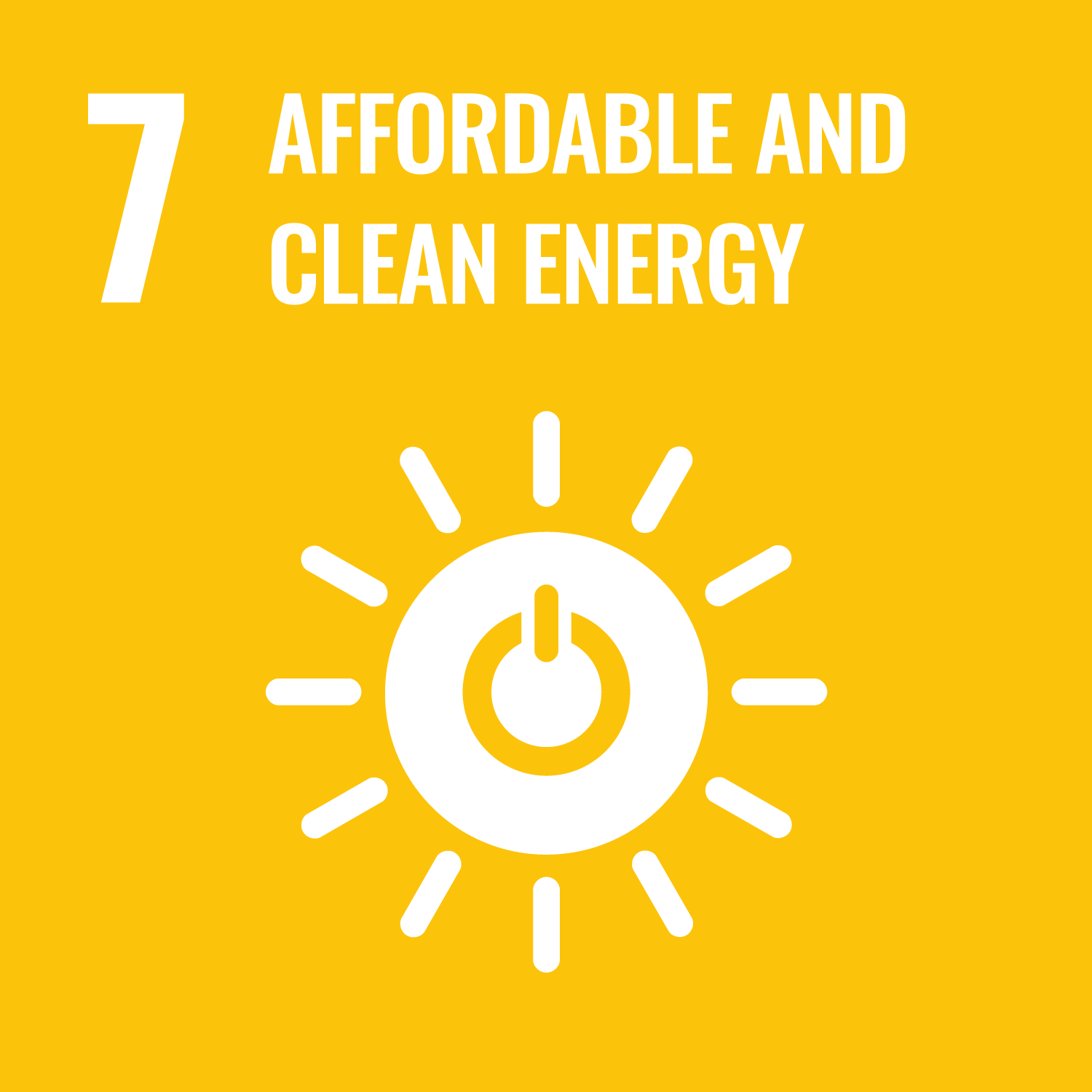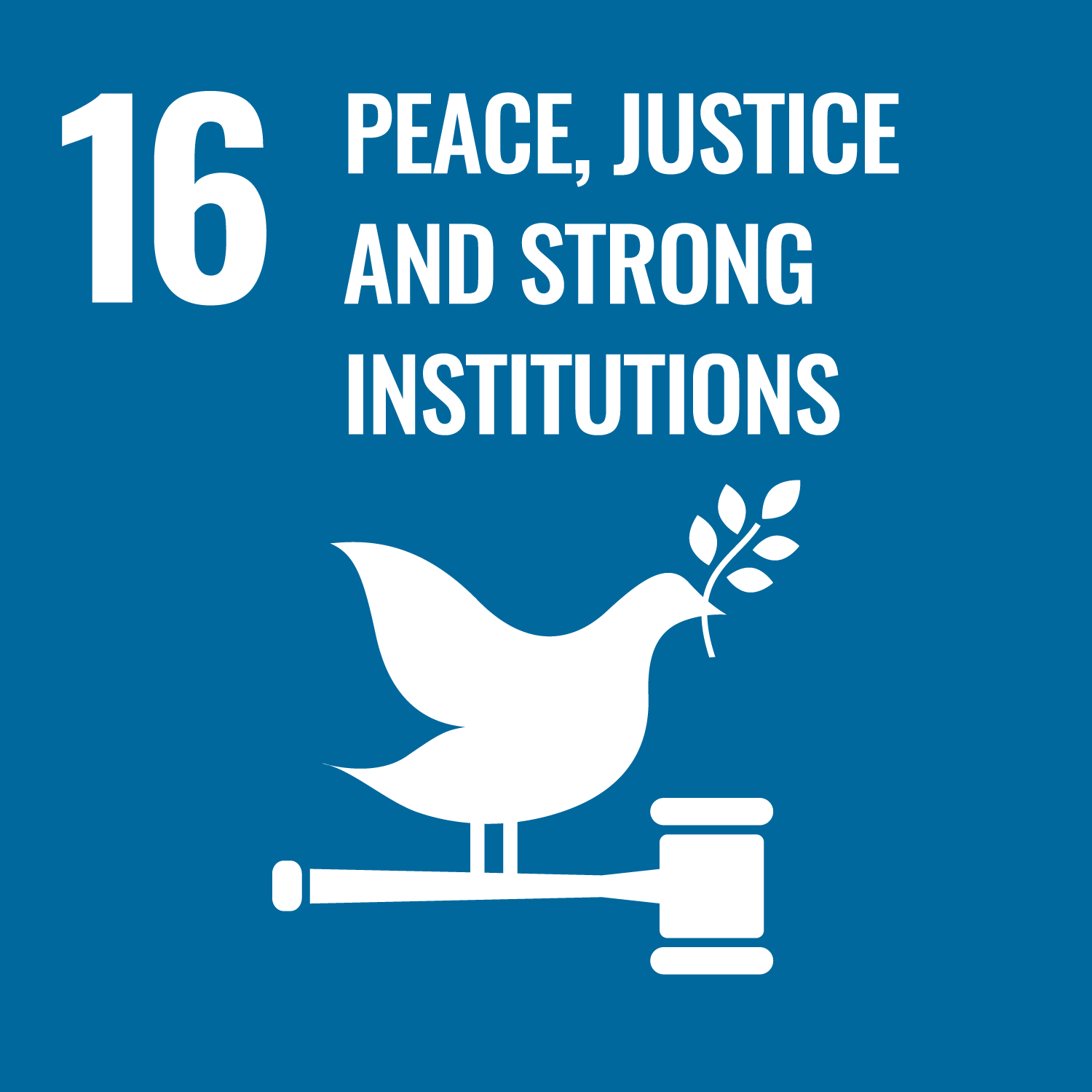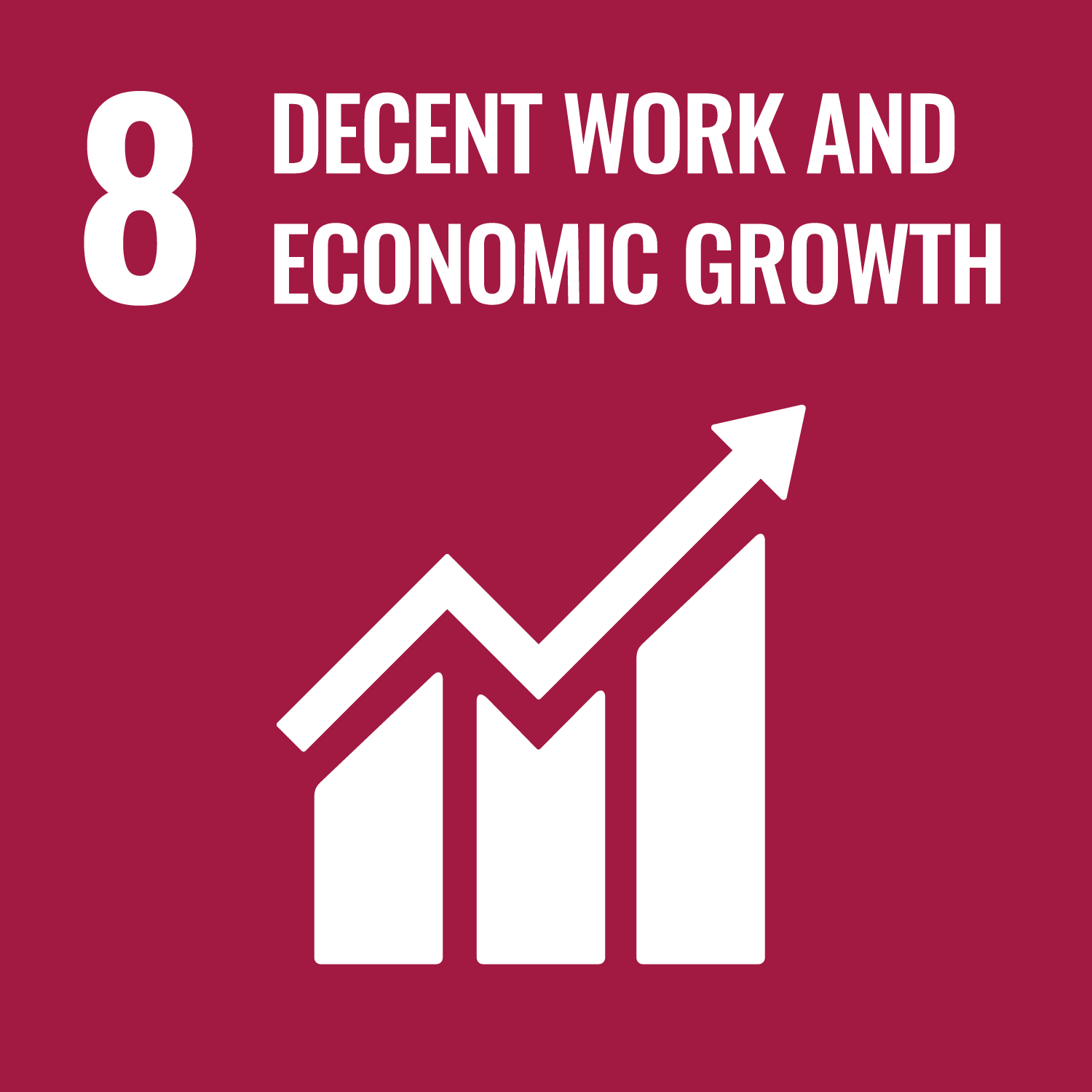
ESG
Sustainable management
Sustainable Development Management Strategy
YungShin Group places “Respect for Life” at the core of its sustainability strategy, establishing 4 Strategic Cores--- (1) Navigating toward a sustainable future through innovation, (2) Creating trustworthy choices with genuine care, (3) Upholding integrity as core value to exemplify accountability and (4) Practicing social compassion with a loving heart. These principles emphasize that during business operations, we must always remember that humanity—and all forms of life—are part of the Earth's ecosystem, not its rulers. Therefore, YungShin Group actively seeks a balance between corporate growth, social sustainability, and environmental protection, aiming for the harmonious and enduring coexistence of all life.
Based on these 4 Strategic Cores, and with reference to the United Nations Sustainable Development Goals (SDGs) and the results of the Group's material topics assessment, YungShin Group has developed a strategic blueprint for sustainability through internal discussions. This blueprint serves as the framework of the Group's long-term sustainability efforts.
Environment
| Theme | Sustainable Development Strategy | SDGs | Material Topics | Management of Material Topics |
| Navigating toward a sustainable future through innovation |
Through innovation, we integrate sustainability into our business operations to achieve a balanced approach between corporate growth and environmental responsibility. This reflects our commitment to respecting all forms of life and fostering a future of shared, sustainable existence |

|
|
|
 |
||||
 |
||||
 |
||||
 |
Governance
| Theme | Sustainable Development Strategy | SDGs | Material Topics | Management of Material Topics |
| Upholding integrity as core value to exemplify accountability |
Upholding the Group's core value of 'Integrity Forever', we adhere to principles of honesty throughout our operations. We foster mutual trust and respect with all stakeholders, working together to achieve shared success |

|
|
|
 |
||||
| Creating trustworthy choices with genuine care |
With genuine and wholehearted love, we are committed to supplying safe, reliable, and high-quality products to our customers, striving to be a trusted and dependable presence in their lives |

|
|
|
Social
| Theme | Sustainable Development Strategy | SDGs | Material Topics | Management of Material Topics |
| Practicing social compassion with a loving heart |
With a heart of compassion, we embed care and love for people and society into our operations. Internally, we take responsibility for the well-being of our employees; externally, we leverage our influence to benefit the broader society |

|
|
|
 |
Identification of Material Topics
YungShin Group uses the “Sustainable Development Reporting Standards Traditional Chinese Translation, October 2021” provided by the Global Reporting Initiative (GRI) as reference for the sustainable industry trend. The group also adheres to the SASB, TCFD and other significant domestic and international regulations for development. The Group complies with crucial principles, using systematization to identify crucial stakeholders and sustainability related issues. The following long term crucial management directions and goals serve as a basic framework of the Sustainable Development Report. In 2024, the Sustainability Development Task Force conducted a reassessment of material topics and expanded the scope of the impact survey. As a result, 13 material topics were identified:
Identify Stakeholders
8 categories of stakeholders
According to dependencies, responsibilities, influences, diverse perspectives, tension, a stakeholder identification internal meeting has been convened. The process and scope of influence the stakeholders hold over YungShin Group has been examined, after which 8 categories of stakeholders were defined, including investors, employees, clients/product users, government agencies, neighborhood communities, suppliers/contractors/distributors, the media and non-profit organizations.
Sustainability Topic Selection
22 Sustainability related issues
To practice sustainability and respond to the global development trends, in accordance with Taiwan Stock Exchange Corporation Rules Governing the Preparation and Filing of Sustainability Reports by Taiwan Stock Exchange (TWSE) Listed Companies, the group adopts GRI standards as crucial subjects for consideration. In consideration of SDGs, SASB, TCFD, relevant industry issues and stakeholder discussion process, the Group has selected, collected and organized 22 related sustainability topics.
Assess the Significance of the Impacts
The issue of Impact Assessment Survey was presented to the Group’s management and Sustainable Development Task Force members, which comprises a further investigation into actual and potential positive and negative level of impact the 22 topics would have on three aspects: the environment, economy and people (including human rights). Based on the survey results, each of the sustainability topics impact level was given a score.
Prioritize the most Significant Impacts for Reporting
13 Material Topics
Based on the results of the previous assessment and the impact intensity ranking from Step 3, the Sustainability Development Task Force initially selected the top 12 sustainability topics. Taking into account stakeholder concerns particularly regarding labor practices, waste management, and water stewardship, the list was expanded to 15 topics. After consolidating certain topics, a final list of 13 material sustainability topics was confirmed. These include: Waste Management, Energy Management, Greenhouse Gas Management, Water Stewardship, Occupational Health and Safety, Labor and Employment Relations, Corporate Image, Integrity in Operations, Climate Change and Regulatory Compliance Risk Management, Economic Performance, Marketing and Labeling, Customer Privacy, and Customer Health and Safety.
List of Material Topics and Analysis of the Impact on Value Chain
During its operations, YungShin Group may generate both positive and negative impacts on stakeholders across the upstream and downstream segments of its value chain. Therefore, the Group further analyzed the potential affected parties for each material topic, which serves as a key consideration in formulating management strategies and compiling the sustainability report. In 2024, there are no significant changes in YungShin Group's activities, value chain, and business relationships compared to the previous year.
| Aspects | Material Topics | GRI Guidelines Specific Topics | Responded Chapter | Value Chain | Stakeholder | |||||||
| Upstream | YungShin Group | Downstream | Investors | Employees | Government Agencies | Non-profit Organization | Neighborhood Community | Media | ||||
| Supplier/ Contractor/ Distributor | Client/ Product User | |||||||||||
| Environment |
Waste Management |
GRI 306:Waste | Chapter 4 Environmentally Responsible Operations |
✓ | ✓ | ✓ | ✓ | ✓ | ✓ | ✓ | ✓ | |
| Energy Management |
GRI 302:Energy | ✓ | ✓ | ✓ | ✓ | ✓ | ✓ | |||||
| Greenhouse Gas Management |
GRI 305:Emissions | ✓ | ✓ | ✓ | ✓ | ✓ | ✓ | ✓ | ||||
| Water Stewardship |
GRI 303:Water and Effluents | ✓ | ✓ | ✓ | ✓ | ✓ | ✓ | ✓ | ||||
| Products |
Customer Privacy |
GRI 418:Customer Privacy | Chapter 3 Product and Service Responsibility |
✓ | ✓ | ✓ | ✓ | ✓ | ✓ | ✓ | ||
| Customer Health and Safety |
GRI 416: Customer Health and Safety | ✓ | ✓ | ✓ | ✓ | ✓ | ✓ | ✓ | ✓ | |||
| Governance |
Integrity in Operations |
GRI 205:Anti-Corruption | Chapter 2 Open and Transparent Governance |
✓ | ✓ | ✓ | ✓ | ✓ | ✓ | ✓ | ||
| GRI 206: Anti-Competitive Behavior | ✓ | ✓ | ✓ | ✓ | ✓ | ✓ | ✓ | |||||
| Climate Change and Regulatory Risk Management | GRI 201: Economic Performance | ✓ | ✓ | ✓ | ✓ | ✓ | ✓ | ✓ | ✓ | |||
| Economic Performance | GRI 201: Economic Performance | ✓ | ✓ | ✓ | ✓ | ✓ | ✓ | ✓ | ✓ | ✓ |
||
| Marketing and Labeling | GRI 417:Marketing and Labeling | ✓ | ✓ | ✓ | ✓ | ✓ | ✓ | ✓ | ||||
| Society |
Occupational Health and Safety | GRI 403:Occupational Health and Safety | Chapter 5 Safe and Fulfilling Workplace |
✓ | ✓ | ✓ | ✓ | ✓ | ||||
| Labor and Employment Relations |
GRI 201:Economic Performance | ✓ | ✓ | ✓ | ✓ | |||||||
| GRI 401:Employment | ✓ | ✓ | ✓ | ✓ | ✓ | |||||||
| GRI 402:Labor/ Management Relations | ✓ | ✓ | ✓ | ✓ | ✓ | ✓ | ||||||
| Corporate Image |
GRI 413:Local Communities | Chapter 6 Social Caring Initiatives |
✓ | ✓ | ✓ |
✓ | ✓ | ✓ | ||||













